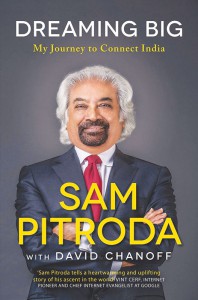Lovers carve their names on trees and rocks —and Indians who had worked for the government, well, they write their memoirs. This is in contrast to the old days when they went to their funerals with their stories in their biers. Most of these memoirs are dull and boring but some hold your interest. One wonders, though, at the reasons for the change of heart in the last ten years. Is it just the need to explain, expatiate, confess, boast, or to say, hey, I was there also? Is it something nobler, like the inner urge to just put down everything for the future generations? Or is it the generous advances that big publishers now offer, and the attendant publicity they arrange? After a lifetime of anonymity both factors play a part, I suppose. In all, India is better off on account of these personal accounts.

There has been a small flood of autobiographies since about 2005. From TV Rajeshwar who headed the IB to AS
Dulat who headed RAW; Jairam Ramesh who ended up as a cabinet minister to DN Ghosh (an IAS officer) who had specialised in banking; Arun Maira who went from the private sector to become a Member of the Planning Commission to, well, I should stop: the list is almost endless. Indeed, gossip has it that many Congress party members like ML Fotedar etc are contemplating a download. That will be real fun because there is nothing like a politician wielding the scalpel on his or her rivals.
Most of these people seek to glorify themselves or to explain things in a way that puts them in a good light. That is a human foible and a natural need. But that is also where Sam — shortened from Satyanarayan for payroll purposes in the US — Pitroda’s book stands out. He makes no such attempt. He tells a modest tale of his life in which things simply happened in a continuum of success, failure and success. It is a real pleasure to read his book.
He doesn’t paint himself into the pious plumes of a saviour. This even though he was one who changed many of the policies and practices of the Government of India in the 1980s when Rajiv Gandhi was Prime Minister. The ‘mission mode’ which Narendra Modi has now adopted was his brainchild.
Understated and factual, without unnecessary flourish, the book presents Pitroda to us in a way that we never saw him. Far from being a boastful charlatan as he was made out to be by the media in the 1980s — and even later — he emerges as a simple and dedicated man.
His was born in a family of modest means but never saw himself as being restricted because of that. He went off to the US for a Ph D in physics but in a sharp exhibition of practicality so that he could bring his beloved over to the US as quickly as possible — a Ph D meant a wait of at least six years — he switched to a one-year course in engineering. She came over, they got married in the Hindu style but not before lighter fluid had been used to light the fire around which they took their vows. A national TV channel then turned up to view this strange heathen ritual, so they had to do it again for the cameras.
He went into the telecom business and quietly became a millionaire in the 1970s. In the 1980s he decided to do something for mother country and sought an appointment with Indira Gandhi who said ok — just that one word — to whatever he was proposing. Rajiv Gandhi was also impressed by his approach to modernising India. That political backing, along with his usual commitment to modernising Indian telecommunications resulted in Indians getting connected to each other for the first time. His PCO initiative created 15 million jobs.
It would have been easy for him to write a salacious account of his interactions with the Gandhis, mother and son. But he doesn’t because that is not his way. He reveals no embarrassing secrets. Yet, his book is full of nice little anecdotes — such as eating beef when he first went to the US and his plane got diverted to Montreal. There, without knowing what ‘rare’ meant, he ordered a steak and ate it — there are dozens of such stories. He had to deal with charges of corruption which perhaps led to a heart attack; he emerged from near bankruptcy and became a millionaire again; and so on.
It is a fascinating story and unusually for such memoirs, this book is a real page turner. It must be read by everyone, and above all by anyone who wants to write his or her autobiography.





